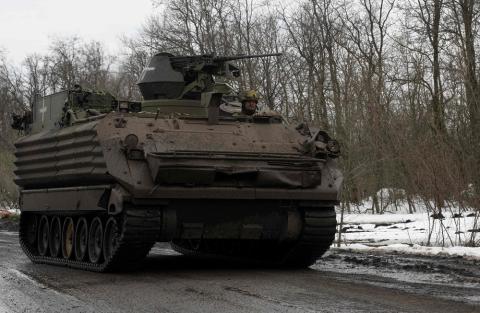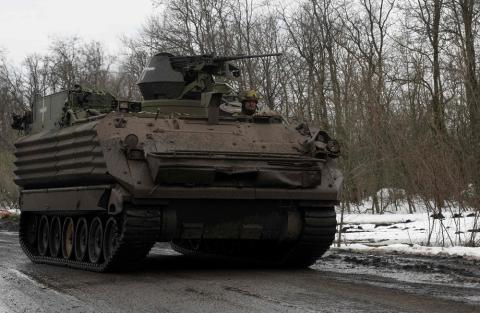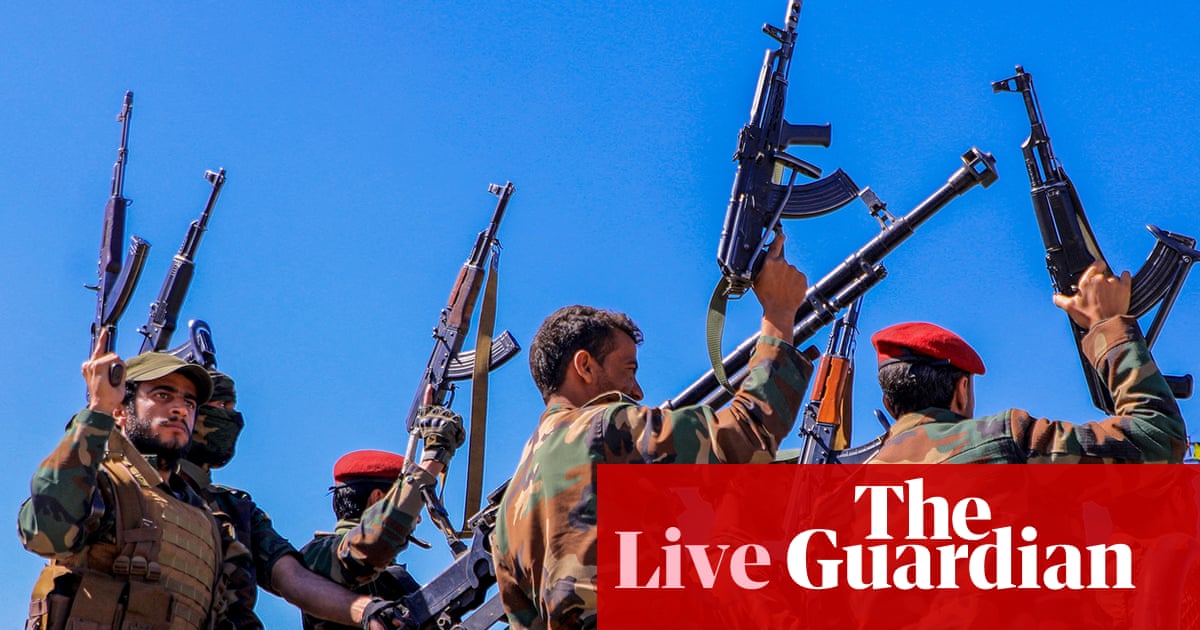
Israeli military says it killed Hashem Safieddine, presumed next leader of Hezbollah
The Israeli military has confirmed the killing of Hashem Safieddine, who was considered the most likely candidate to replace Hassan Nasrallah as the Shia Muslim militant Islamist organisation’s top leader after Nasrallah’s assassination last month.
In a statement posted to Twitter/X, the Israeli military said Safieddine was killed in an attack in Beirut about three weeks ago, along with other Hezbollah commanders.
Safieddine, who chairs Hezbollah’s executive council and is a cousin of Nasrallah, was popular within the organisation and among its sponsors in Tehran.
Israel is weighing the use of private security contractors – possibly involving UK special forces veterans – to deliver aid to Gaza, as conditions in the north of the strip worsen dramatically, the Guardian has learned.
According to an Israeli official, the security cabinet discussed the issue on Sunday, before an expected vote in the Knesset next week on two bills that would ban the UN relief agency, Unrwa, from operating in Israel. If passed, the bills would severely curtail the operations of by far the biggest aid operation in Gaza.
After more than a year of bombardment, all form of law and order has collapsed in Gaza, where the population is desperate and armed gangs run much of what is left of its urban areas.
Security threats are a major obstacle to aid deliveries, including the threat of attack by Israeli forces. Aid agencies have resisted being part of militarised convoys, state or privately run, for fear of being targeted as being party to the conflict.
“There’s a reason that humanitarians don’t operate this way,” said Jeremy Konyndyk, a former senior aid official in the Biden administration, now president of Refugees International.
The US, during the peak ‘war on terror’ era, occasionally experimented with military contractors and this kind of militarised aid delivery, and it was always a disaster.
Read the full story here: Israel mulls using private security contractors to deliver aid to Gaza
At least three Israeli strikes hit south Beirut, says Lebanese news agency
At least three Israeli strikes targeted Beirut’s southern suburbs Tuesday evening, according to Lebanon’s official ANI news agency.
Two of the strikes hit the Laylake district, near a stadium, ANI reported.
The strikes came shortly after Israel’s military issued new evacuation warnings for residents in specific buildings in Beirut’s southern suburbs.
Palestinians under an Israeli siege in northern Gaza “are rapidly exhausting all available means for their survival”, the UN’s humanitarian office has warned.
The UN’s office for the coordination of humanitarian affairs (OCHA) also accused Israel of denying its requests to deliver life-saving aid to northern Gaza.
OCHA spokesperson Farhan Haq told reporters on Tuesday that Israeli authorities continued to deny requests to help rescue dozens of people trapped under their collapsed homes in the Falouja area of the Jabaliya refugee camp in the north.
The requests that were denied include planned missions by UN agencies and their partners to deliver supplies including blood, medications, food parcels and fuel to hospitals and water facilities, he said.
Earlier this month, the US warned Israel that it must increase the amount of humanitarian aid it is allowing into Gaza within 30 days or it could risk losing access to US weapons funding.
It said at least 350 trucks a day need to get into Gaza and Israel must provide additional humanitarian pauses and increased security for humanitarian sites.
OCHA reported that 25 trucks entered Gaza on Sunday, 25 on Saturday, and 65 on Friday.
Israel’s top general has warned his country will “reach anyone who threatens the security of Israel’s citizens” after the Israeli military confirmed it killed top Hezbollah official Hashem Safieddine in an airstrike on Beirut earlier this month.
In remarks provided by the Israel Defense Forces (IDF), its chief of staff Lt Gen Herzi Halevi said:
We reached [Hassan] Nasrallah, his replacement, and most of Hezbollah’s leadership. We will know how to reach anyone who threatens the security of Israel’s citizens.
Video footage captures the moment an Israeli missile flattens a building in southern Beirut, which the Israel Defense Forces (IDF) said contained “Hezbollah facilities”.
After the strike the building collapses into a pile of rubble, as a plume of smoke rises into the sky. The building was located in a heavily trafficked area across the street from a large park.
Israel had also targeted an area near the Rafik Hariri university hospital, killing at least a dozen people in the overnight attack.
Hashem Safieddine was the target of a series of massive Israeli strikes on southern Beirut earlier this month, according to reports at the time.
About 25 other Hezbollah leaders were killed during the strike, Israel’s military said.
Safieddine, who chaired Hezbollah’s executive council, was the most obvious candidate to succeed Sayyed Hassan Nasrallah as the group’s leader after he was assassinated in an Israeli airstrike in September.
A cousin of Nasrallah, Safieddine was born in 1964 in southern Lebanon and was thought to have spent many years in Qom, the Iranian religious city.
He had been entrusted by Hezbollah with a variety of tasks over the decades, including managing the organisation’s extensive portfolio of legal and illegal businesses. Last year he said:
It may take one war, two wars, three wars, multiple confrontations, military confrontation, the sacrifice of martyrs, bearing the burden, dealing with the consequences, but ultimately, [Israel] must come to an end.
Israeli military says it killed Hashem Safieddine, presumed next leader of Hezbollah
The Israeli military has confirmed the killing of Hashem Safieddine, who was considered the most likely candidate to replace Hassan Nasrallah as the Shia Muslim militant Islamist organisation’s top leader after Nasrallah’s assassination last month.
In a statement posted to Twitter/X, the Israeli military said Safieddine was killed in an attack in Beirut about three weeks ago, along with other Hezbollah commanders.
Safieddine, who chairs Hezbollah’s executive council and is a cousin of Nasrallah, was popular within the organisation and among its sponsors in Tehran.
Here are some of the latest images sent from the newswires from northern Gaza:
A visit by the US secretary of state, Antony Blinken to Jordan has been postponed, according to the Jordanian foreign ministry.
A US official said Blinken will travel to the Saudi Arabian capital of Riyadh on Wednesday for talks on normalisation with Israel, instead of previous plans to head to Jordan due to scheduling issues.
Israel issues new evacuation warnings for southern Beirut
The Israeli military has issued new evacuation warnings for residents of Beirut’s southern suburbs ahead of an expected airstrike.
The Israel Defense Forces (IDF) Arabic spokesperson, Avichay Adraee, posted maps showing specific buildings in the Lebanese capital’s southern suburbs, and ordering residents to evacuate and stay away from the area.
At least 10 killed in two Israeli strikes in Lebanon, says health ministry
Lebanon’s health ministry said two separate Israeli strikes on Tuesday evening killed at least 10 people in the country’s south and northeast.
In separate statements, the Lebanese ministry said five people were killed and 10 others wounded in the north-eastern Hermel region near the Syrian border, and five more killed and 21 wounded in the southern city of Nabatiyeh.
The latest figures came after the Lebanese government said at least 63 people were killed in Israeli strikes on Lebanon on Tuesday, bringing the total death toll to 2,530.The rescuers struck at the concrete with jackhammers, excavators and even pickaxes, pausing occasionally and demanding silence, straining to hear anyone still trapped under the collapsed building.
Beneath the rubble, nothing stirred. They resumed, many working through the night after Israel carried out airstrikes on residential buildings across the street from Lebanon’s Rafik Hariri university hospital, killing 18 people, including four children, and wounding 60 on Monday night.
“They accuse us of belonging to a culture of death, but it’s not true – we have a culture of life, we are a people who love life. They are the ones who are killing us,” said Qassem Fakih, 39, whose skin was ghost-white from dust after digging for hours trying to find his relatives who lived in the block of flats.
Four of his cousins, all children, had been pulled out of the rubble dead, and he was working to find two more family members who were missing.
Dozens of US House Democrats have urged the Biden administration to push for “unrestricted, independent media access” to Gaza.
In a letter to President Joe Biden and his secretary of state, Antony Blinken, 64 House Democrats said the effective ban on foreign reporting in the Palestinian territory has “placed an overwhelming burden on local journalists who are documenting the war they are living through”. The letter reads:
At a time when reliable information is more critical than ever, the restrictions on foreign reporting undermine the very foundation of press freedom and democratic accountability.
It continues:
We urge the administration to take immediate action to advocate for unrestricted, independent media access to Gaza. A free press is essential to ensuring that the world can bear witness to the realities on the ground and hold all parties accountable.
Proposals for "full siege" of northern Gaza by Israel "gaining traction" - report
The Gaza civil defence agency said last week that at least 400 people have been killed in the ongoing Israeli assault in northern Gaza that began on October 6.
The Israeli military says it is targeting Hamas militants who have regrouped in the area, Agence France-Presse reports.
Though not a formal Israeli policy, analysts have told AFP that proposals for a full siege of northern Gaza to close in on militants were gaining traction.
And some members of the Israeli government have openly called for the resettlement of the Gaza Strip, which Israel occupied in 1967 and maintained troops and settlements there until 2005.
Palestinians evacuating on the orders of the Israeli military told AFP they were made to wait for hours at checkpoints and some were asked if they were connected to Hamas.
Below is an agency image selected by the Guardian to show aspects of the growing death toll in this part of Gaza this week, while being very much less bloody and graphic than many images available.
Trapped for days as Israeli forces unleashed a sweeping assault, then rounded up and searched by troops who told them to leave, thousands of war-weary Palestinians have fled north Gaza.
Online videos verified by Agence France-Presse (AFP) showed dozens of displaced Gazans funnelling on Monday into a checkpoint manned by soldiers in Jabalia, the focus of the massive Israeli military operation since early October, AFP reports.
Walking past an Israeli tank on a rubble-strewn dirt road, they were checked before being allowed through in a single file.
Paramedic Nevin al-Dawasah said she was trapped for 16 days in a shelter for displaced people in the Jabalia refugee camp.
Eventually, she told AFP, an Israeli army drone equipped with loudspeakers was “telling us that the Israel Defense Forces [IDF] were asking us to evacuate”.
We responded and... evacuated the shelter, but suddenly there was shelling,” she said.
She said she felt compelled to take videos of the wounded because “there are no journalists in the north”, already ravaged by successive Israeli operations during more than a year of war.
People are fleeing.
On the move again.
Heavy load.












